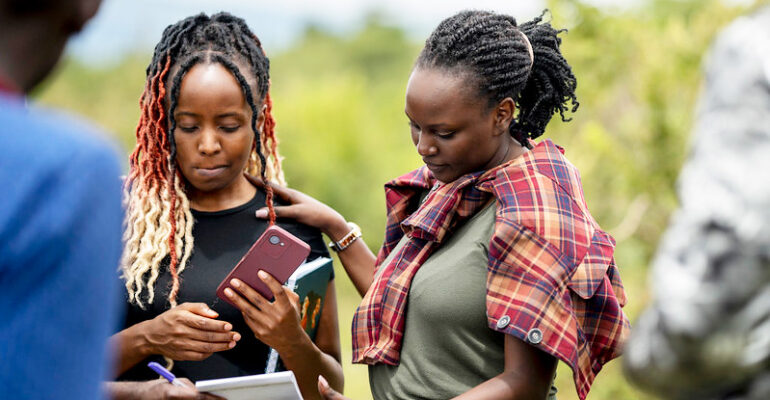A Commitment to One Health: The Inspiring Journey of Pacifique Ufitinema Through MGHD
July 31, 2024 2025-02-22 20:13A Commitment to One Health: The Inspiring Journey of Pacifique Ufitinema Through MGHD
Early Beginnings and Professional Path
From a young age, Dr. Ufitinema Pacifique had a deep desire to build a career centered around serving others. This passion strongly motivated her to pursue a career in medicine, leading her to become a dedicated medical professional. With over four years of experience, primarily working in rural hospitals, Dr. Pacifique witnessed the profound impact of health disparities on vulnerable populations. She encountered the harsh realities of diseases, particularly chronic and neglected ones, which were exacerbated by poverty and food insecurity, especially during the COVID-19 pandemic. Her involvement in community outreach programs, focusing on disease prevention, screening, and community education, profoundly shaped her career and passion for public health.
Choosing to pursue a One Health course was a natural progression for Dr. Pacifique, aligning perfectly with her dedication to addressing health inequities. She aims to focus on community-based initiatives that implement sustainable health solutions, particularly in neglected tropical diseases and pandemic preparedness.
“One Health is not just a professional path but a deeply personal mission to make a lasting impact on the health and well-being of underserved communities.” Dr. Pacifique says.
Motivation for the MGHD Program
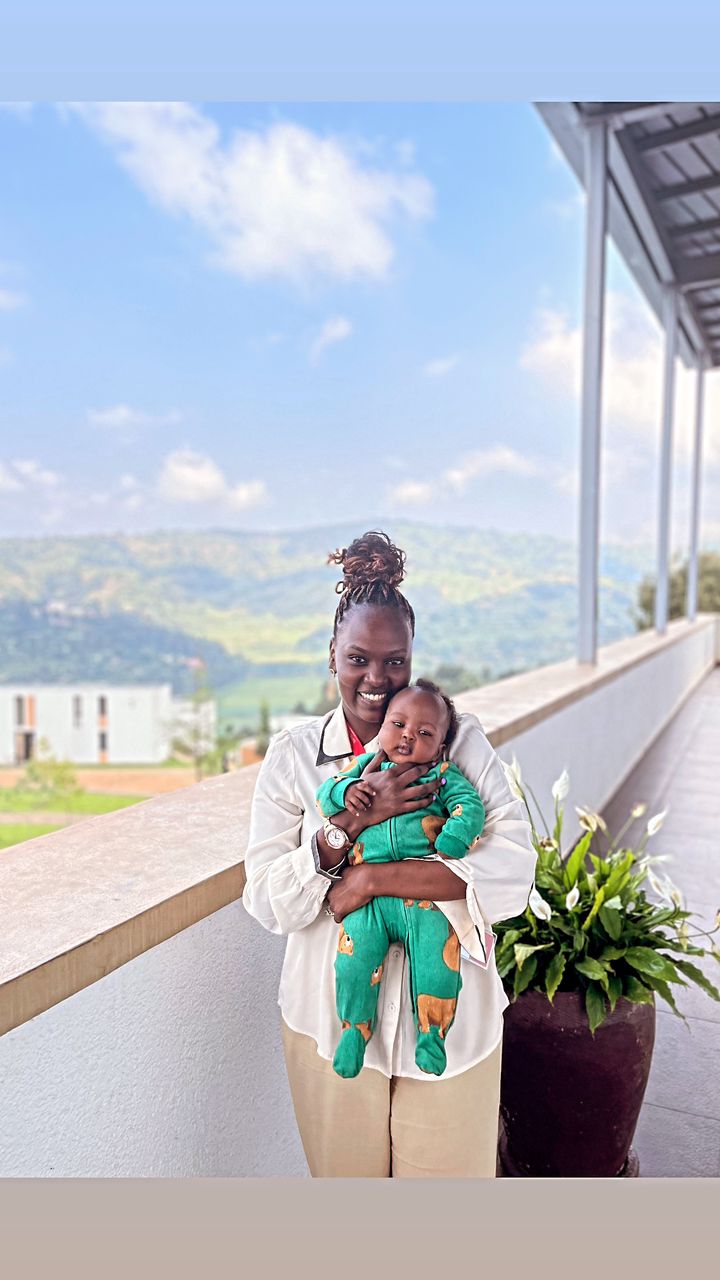
Dr. Pacifique’s journey towards the Master of Science in Global Health Delivery (MGHD) program, with a focus on One Health, is rooted in her personal and professional experiences. Working in rural hospitals exposed her to the critical intersections of health, poverty, and food insecurity. The COVID-19 pandemic escalated these issues, disrupting food supplies and worsening existing health disparities. One Health track offers a comprehensive framework to tackle these multifaceted challenges, emphasizing interdisciplinary collaboration and holistic health solutions, which align perfectly with her experiences and aspirations.
Standout Modules and Key Lessons
Two modules that have particularly stood out to Dr. Pacifique in the MGHD program are the One Health Field School and the course on Neglected Tropical Diseases (NTDs). The One Health Field School provided an invaluable hands-on learning experience, allowing her to witness the connections between human, animal, and environmental health. This module emphasized the importance of interdisciplinary collaboration and comprehensive approaches in addressing complex health issues, reinforcing her commitment to the One Health approach.
The NTD course was equally impactful, deepening her understanding of diseases that disproportionately affect marginalized communities.
“Through case studies and field experiences, I have learned about the critical role of community engagement and education in combating these diseases.” Dr. Pacifique says.
These insights have played a key role in shaping her approach to addressing health disparities and equipped her with the tools needed to develop effective interventions in her future work.
Importance of One Health
In Dr. Pacifique’s perspective, One Health matters because it acknowledges the interconnectedness of human, animal, and environmental health. This holistic approach is essential in addressing complex health challenges such as pandemics, food insecurity, and neglected tropical diseases. By integrating multiple disciplines, One Health fosters collaboration and innovation, ultimately leading to more sustainable and effective health solutions. In her experience, this approach has proven vital in understanding and mitigating the health impacts of socio-economic factors and environmental changes on vulnerable populations.
“One Health track has profoundly equipped me with the skills needed to tackle health inequities within communities.” Dr. Pacifique declares.
To Dr. Pacifique, this program’s emphasis on the interconnectedness of human, animal, and environmental health has expanded her perspective, allowing her to view health challenges through a holistic viewpoint. It has empowered her to design and implement comprehensive health strategies that address the root causes of inequities.
In addition to this, the multidisciplinary approach of One Health has taught her to how collaborate with various stakeholders, promoting comprehensive and sustainable solutions to health disparities.
The Influence of the Diverse 2024 Cohort
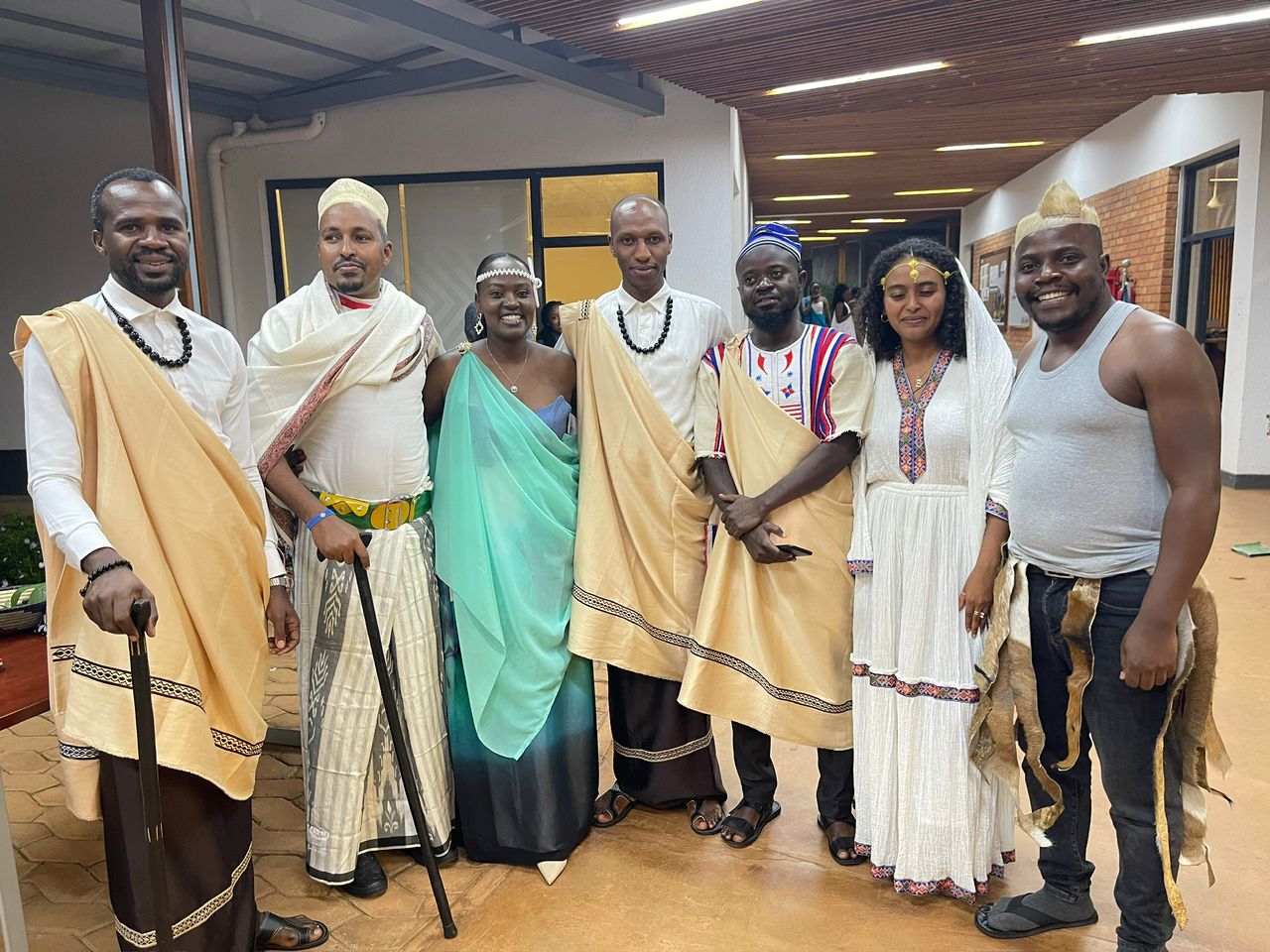
Being part of the diverse 2024 cohort has profoundly enriched Dr. Pacifique’s learning experience. The unique perspectives and backgrounds of her peers have encouraged a dynamic and inclusive environment, motivating strong discussions and collaborative problem-solving. This diversity has not only enhanced her understanding of global health issues but also provided interesting insights into different cultural and contextual approaches to health challenges.
On a personal note, Dr. Pacifique’s journey on campus with her firstborn, who was just three months old when they arrived, was the hardest thing she ever did but it was rewarding, thanks to UGHE’s incredible support and thoughtful provisions.
“The love and support I received helped me persevere through the hardest times, and it’s because of them that I stand proud today. As I reflect on this journey, my heart swells with pride and gratitude.” She testifies.
This diverse and supportive environment not only fueled her academic growth but also provided a compassionate community where she felt truly understood and supported. To all the women out there with dreams, she says: “you are strong, capable, and unstoppable. No matter the obstacles, you can achieve your dreams.”
Practicum Project
Dr. Pacifique’s practicum project focuses on exploring the lived experiences of Podoconiosis patients in accessing water, sanitation, and hygiene (WASH) in Butaro. The primary challenges her colleagues and herself aim to address include the human, animal, and environmental barriers and facilitators to accessing essential WASH services and factors that impact home-based management of the disease. This project is deeply connected to the principles of One Health, as it emphasizes the need for integrated solutions that consider the health of people, animals, and the environment. By identifying these barriers and facilitators, they hope to develop targeted interventions that improve WASH access and overall health outcomes for Podoconiosis patients, ultimately contributing to more resilient and equitable health systems.
Graduation excitement
Dr. Pacifique reflecting on the hardships in the program, especially in the first two months, feels over the moon thinking about graduation.
“I am extremely excited about my upcoming graduation! This milestone signifies not just the completion of a demanding academic journey but also a powerful testament to my resilience and determination.” Dr. Pacifique says.
She notes about how balancing the MGHD program and caring for her daughter was an incredibly tough challenge, especially during the first two months. There were countless moments of extreme exhaustion and stress, but the support and encouragement from her family, colleagues, and the entire UGHE community were her lifeline.
“This graduation is not just a personal victory; it’s a celebration of the collective strength and love that surrounded me. I eagerly look forward to the day I can stand tall and share this milestone with those who believed in me every step of the way.” Dr. Pacifique added.
Preparation for Addressing Global Challenges
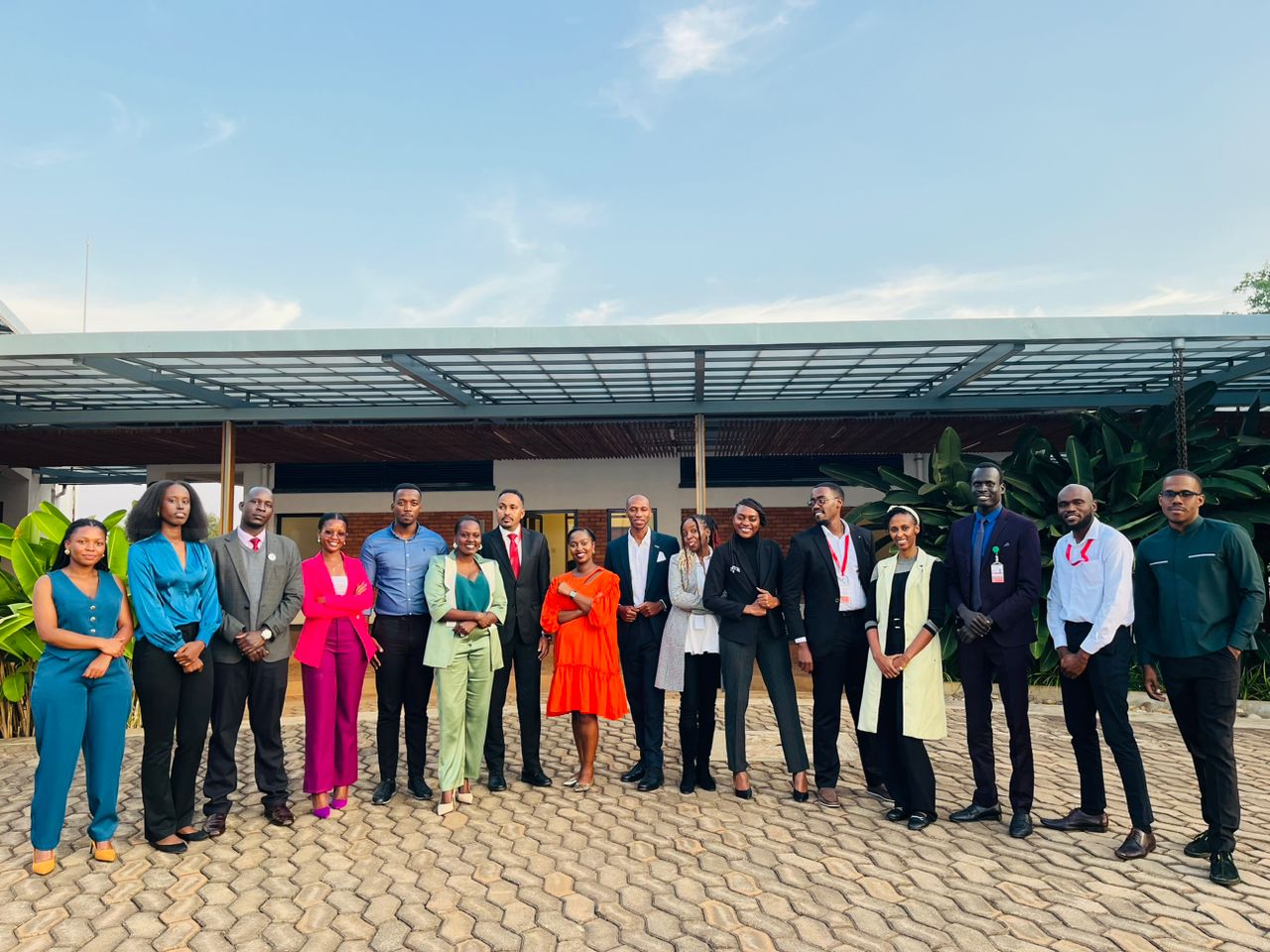
The One Health option in the MGHD Program equips Dr. Pacifique with a comprehensive understanding of the intricate relationships between human, animal, and environmental health. Through coursework and field experiences, she has gained insights into how environmental changes, such as climate change, can increase health issues like food insecurity and the spread of infectious diseases. The program emphasizes interdisciplinary collaboration and systems thinking, which are crucial for developing effective strategies to tackle these complex challenges. This comprehensive education is preparing her to respond to pandemics and other health crises by promoting sustainable practices, improving disease surveillance, and fostering collaboration across sectors to build resilient health systems.
Post-Graduation Plans
After graduation, Dr. Pacifique plans to continue her work in the One Health field, focusing on neglected tropical diseases and their social determinants. Her goal is to develop and implement integrated health programs that address the root causes of health disparities in Rwanda and similar contexts. She aims to collaborate with local and international organizations to promote sustainable health solutions, enhance disease prevention, and improve access to essential services. Additionally, she is committed to contributing to policy development and advocacy efforts to ensure that One Health approaches are prioritized in health systems planning and implementation. Dr. Pacifique’s ultimate objective is to create a significant and lasting impact on the health and well-being of underserved populations through a multidisciplinary approach.
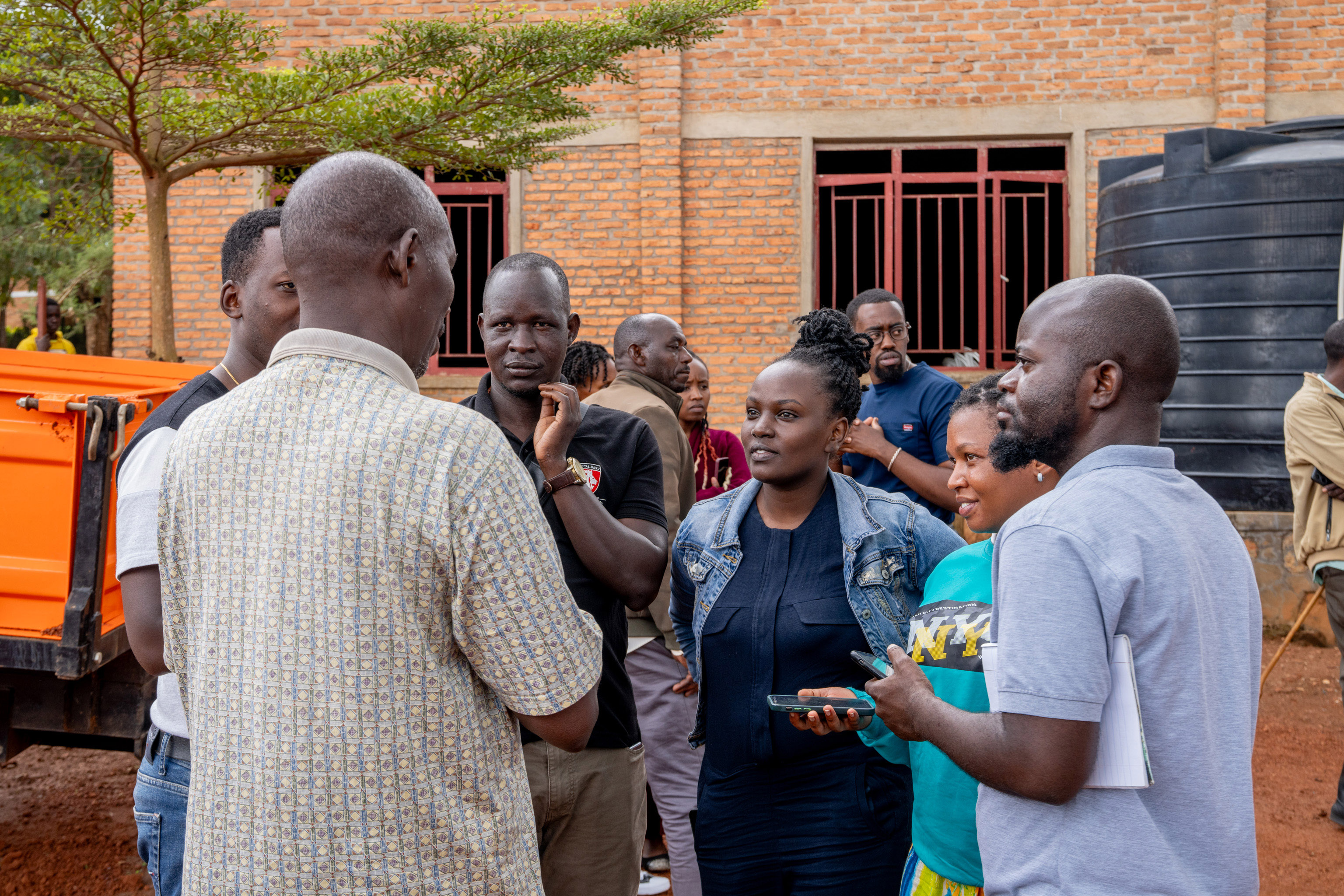
A Message to the world
“As a graduand from UGHE’s MGHD program, my message to the world about health equity is that it starts with understanding and addressing the unique needs of everyone within their specific context. My experience has shown me that true health equity involves not only providing access to healthcare but also creating environments that support overall well-being. For example, the comprehensive support I received as a mother on campus highlighted how thoughtful provisions can drastically improve health outcomes. We must advocate for policies that consider the social determinants of health and ensure that every person, regardless of their circumstances, can thrive.”

